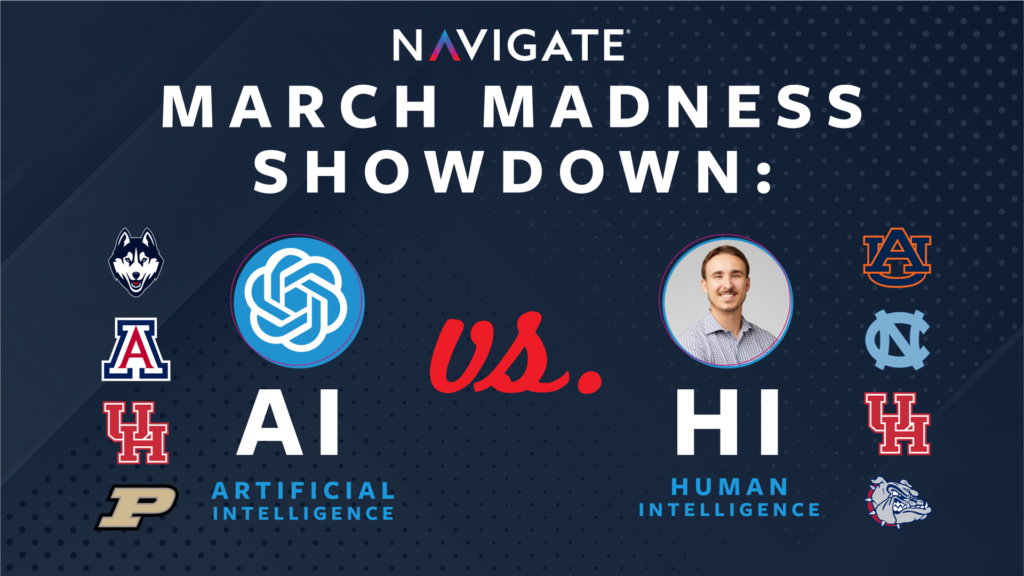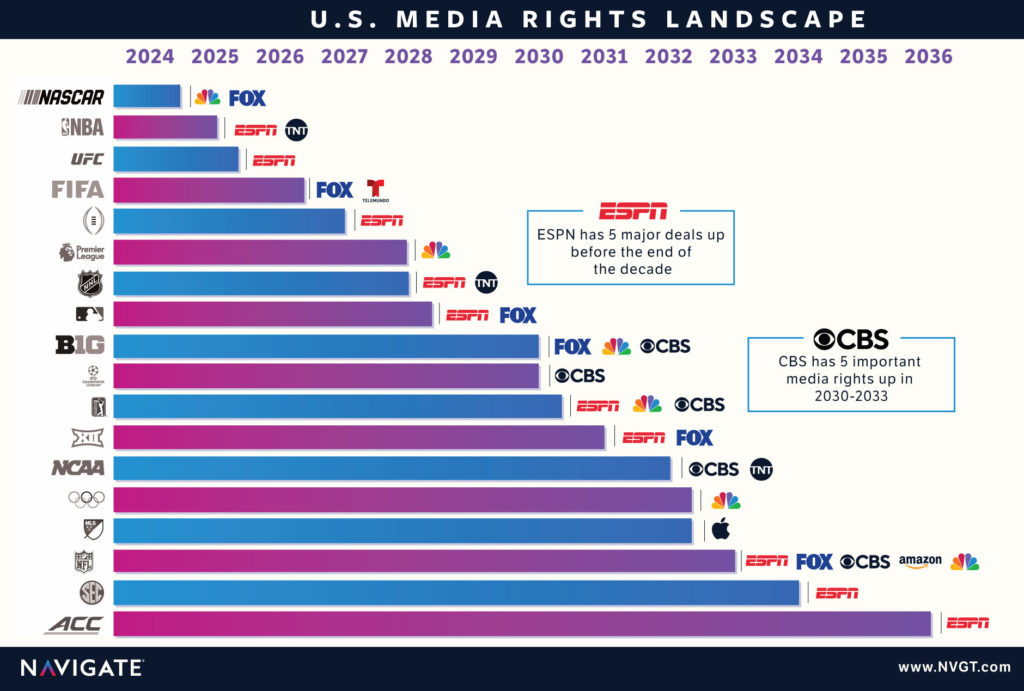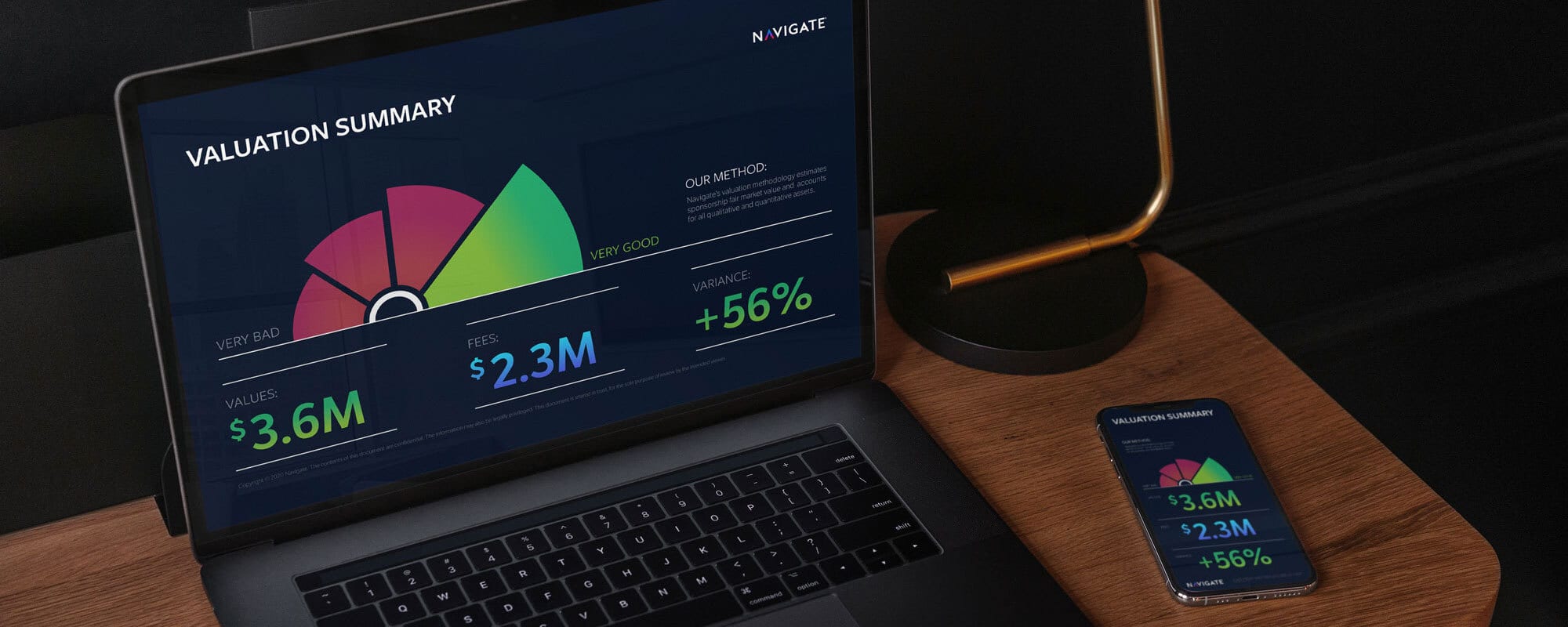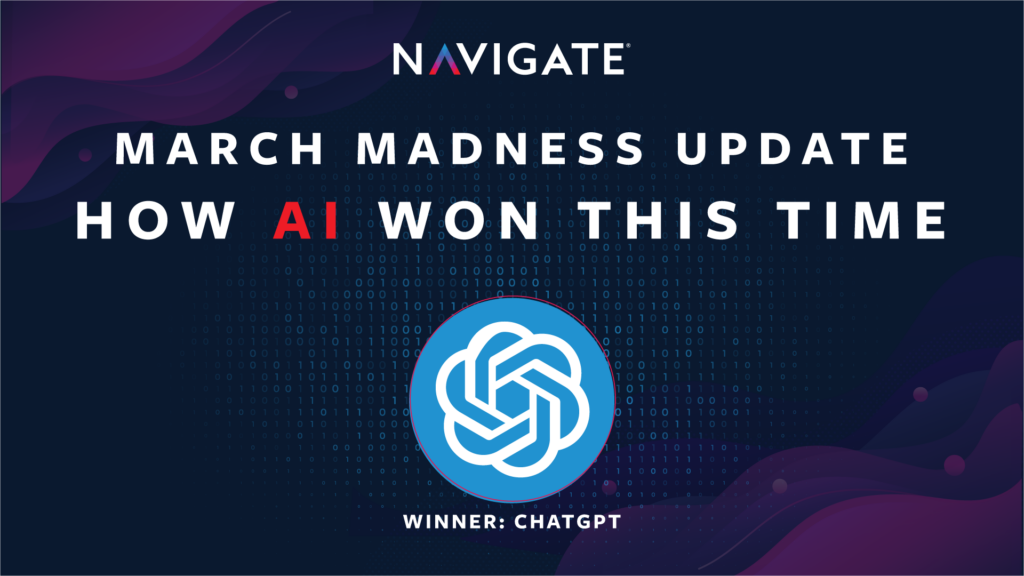
March Madness Update: How AI Won This Time
If you missed the introduction of this year’s March Madness Showdown, be sure to check out the full breakdown of my competition against our bracket-creating AI.
The final tally on points is as follows (our scoring system awarded 1 point for correctly picking games in the first round, and then point values doubled in each subsequent round).
It’s worth noting that after the first 2 rounds, both brackets were looking great. Mine was #1 in the Navigate internal pool, and was in the 99.6th percentile on ESPN’s site. The AI was #2 at Navigate, and 99th percentile nationwide. However, I ended up with zero of my Final Four picks remaining, and since point values doubled with each round, this dealt a major blow to my final score.
Drew: 51 points
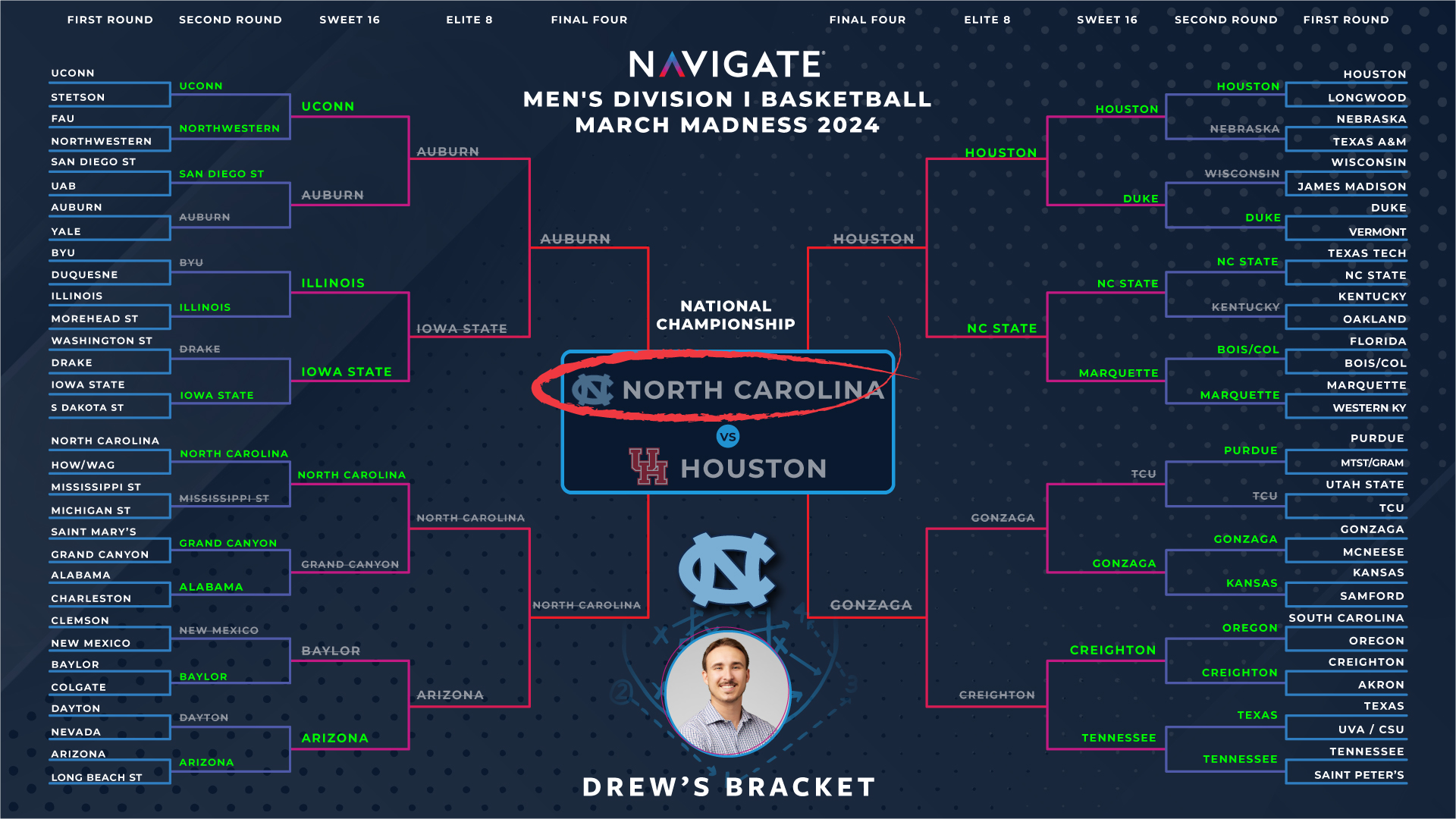
- Not only was I wrong about TCU (predicting they’d beat Purdue in the second round and make it to the Sweet Sixteen), but I was also wrong about Purdue – they were LEGIT.
- I stand by Gonzaga as a good pick, they looked like a strong team, they just couldn’t get past Purdue.
- Alabama messed everything up… beating my champion UNC.
- GCU didn’t make Sweet 16, but I still feel good about that prediction, because they played Alabama tough.
- UNC looked great in my opinion before running into a buzzsaw offense.
- Auburn was my biggest mistake – I knew I was overthinking that region.
- NC STATE!!! I had them going all the way to the Elite 8.
- The bracket was still strong through the first couple of rounds. I just picked the wrong 1-seeds and some of my upsets didn’t pan out.
Navigate’s College Basketball AI: 94 Points
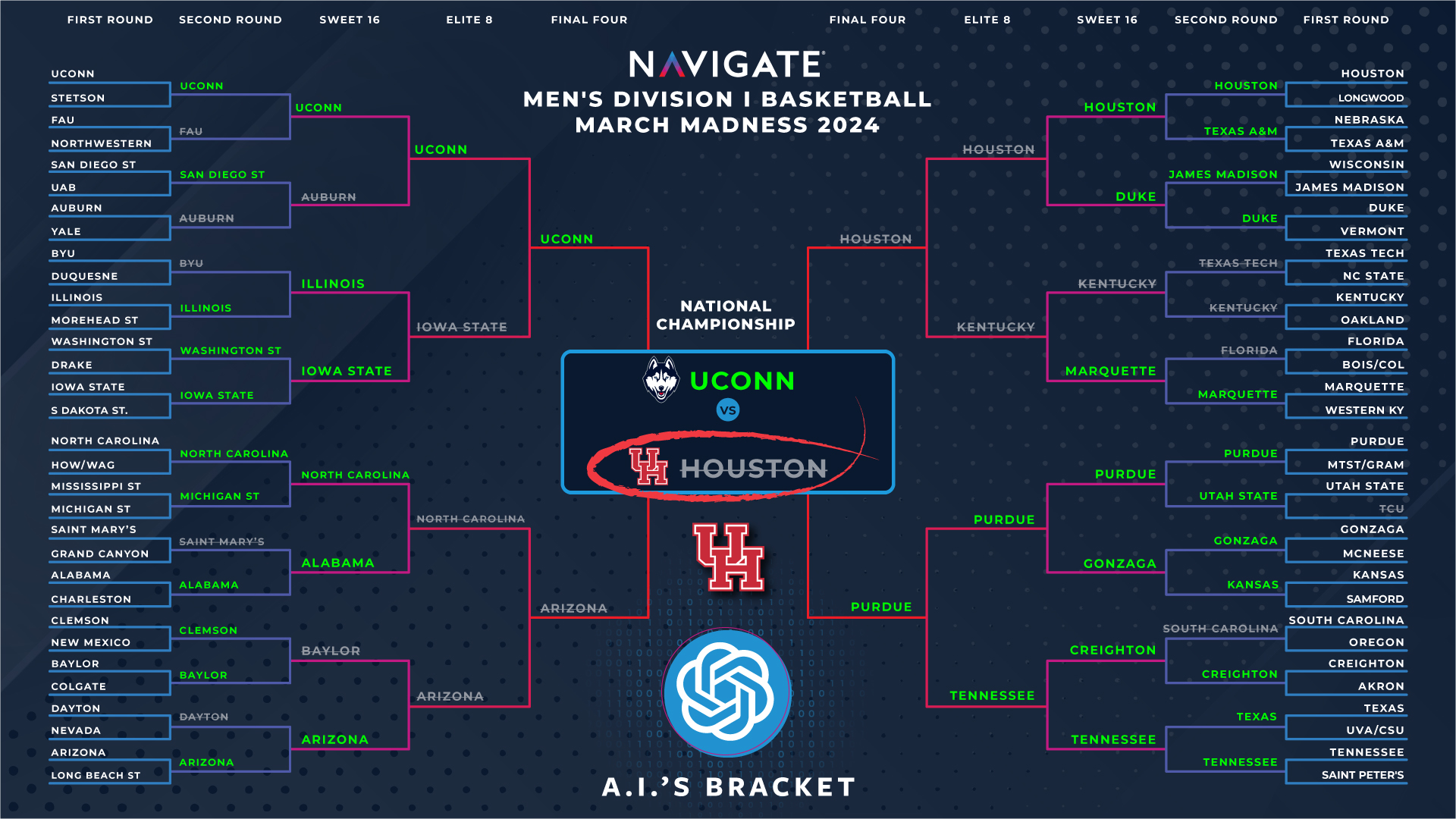
The biggest criticism of the AI’s bracket before the tournament was that it was too chalky, picking mostly higher seeds across the board. It ended up working pretty well, in a year that seemingly had fewer upsets than expected. However, it’s worth noting that this tournament has 9 upsets (by our definition), right around the annual average of 8.4. Does this suggest picking mostly the favored teams is a good strategy most years?
- James Madison upset Wisconsin. If you’re only going to pick one real upset in the first round, you’d better hope you get it right. Our AI nailed this pick, citing JMU’s strong offense and statistical record all season long.
- Michigan State and Texas A&M winning as 9-seeds. While not exactly traditional upsets, the other 2 times in the first round that the AI projected a lower seed to win, both came to fruition.
- Houston looked like a strong team right up until Jamal Shead’s injury against Duke. Had he stayed healthy, who knows what might’ve happened. Still, they lost and the AI’s champion was eliminated.
Is Artificial Intelligence Ready to Replace Human Intelligence?
Despite the results of this contest, probably not. The AI still finished 6th place among Navigate employees, not to mention the fact that March Madness is notoriously unpredictable. “Coin toss” brackets have been beating the “experts” for years, so it turns out that brackets may not be the best measure of analytical prowess.
At its current level of sophistication, AI is best-used as a tool to inform HI decision-making along with other forms of data and information. We’ve found that AI is great at gathering information quickly and analyzing it for surface-level trends. It still requires human supervision to ensure that it isn’t “hallucinating” (the term for when an LLM confidently outputs incorrect information).
It’s also important to find the best AI tool for the job. In this case, we created our own custom GPT which was fed a mountain of stats and rankings. But for business and productivity use-cases, we are constantly evaluating new tools that provide specialized expertise, increase efficiency, and guarantee data security. We’ll be publishing more thoughts on AI productivity and tools in the near future.


